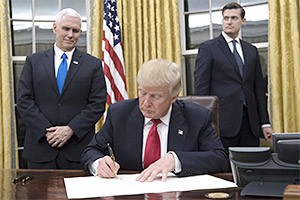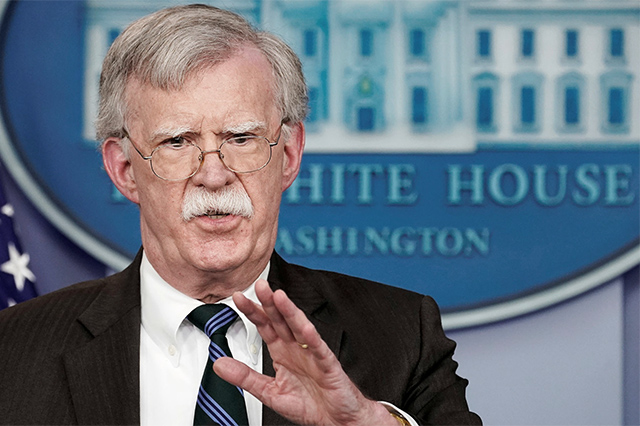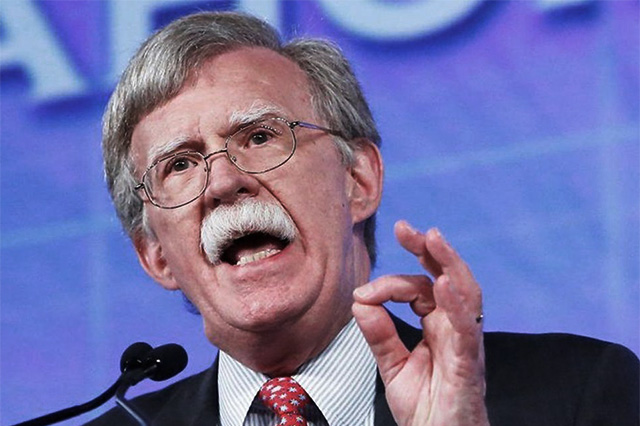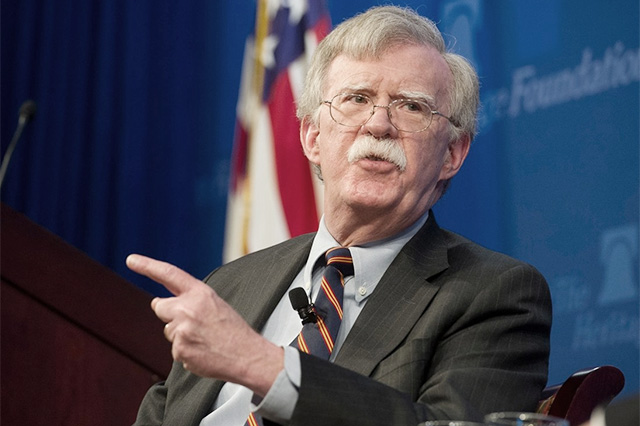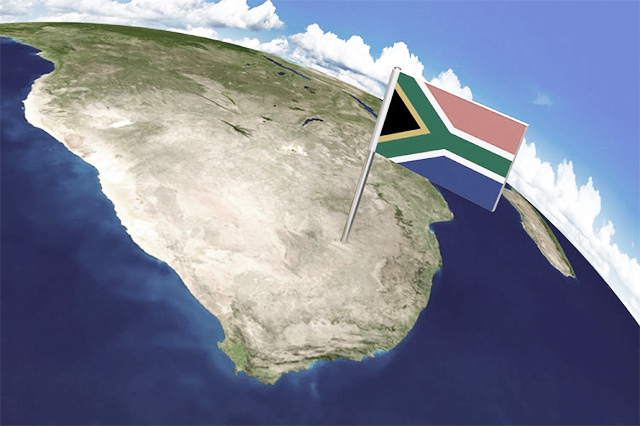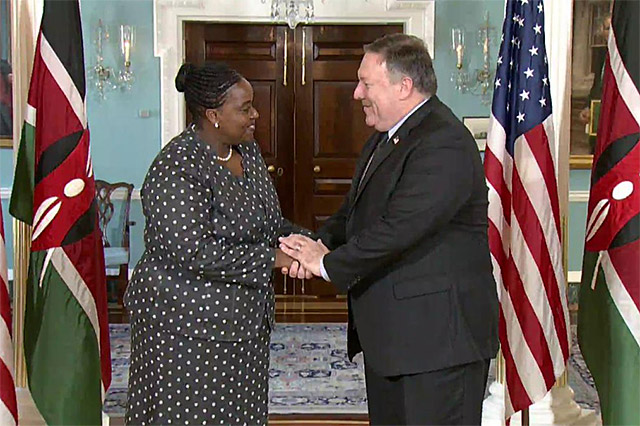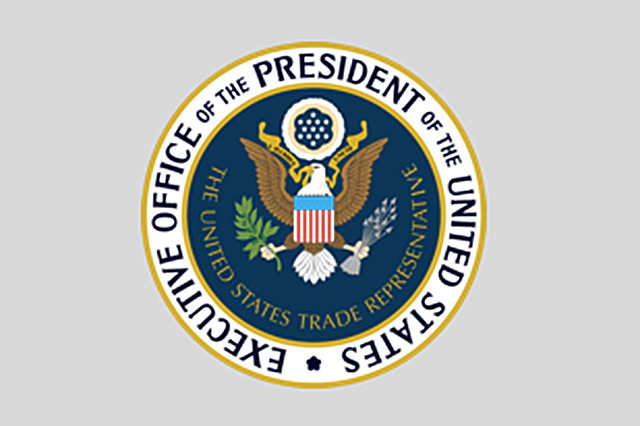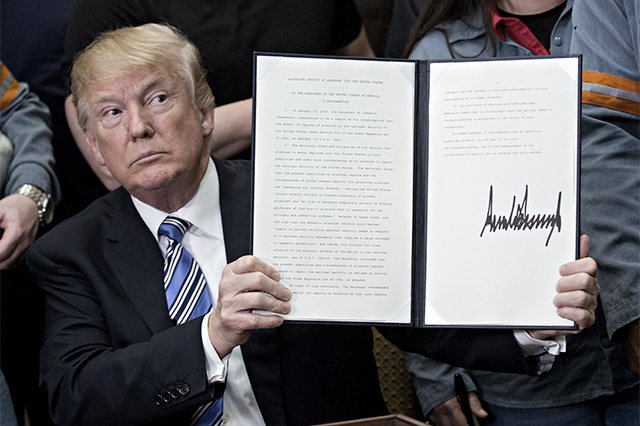Implications of Trump presidency for Africa
With the inauguration of Donald Trump as the 45th President of the United States, a new chapter has opened in United States-African relations. His emergence raised fundamental questions about what is likely to change in America’s role in the world; every region of the world, including Africa, has been pondering over how it will impact on them.
The fear of African countries was aggravated by the silence of the then Republican candidate on Africa throughout the campaign. He did not give any indication about his policy direction as far as Africa is concerned. While Trump’s campaign had focused heavily on US relations with Russia and China, he didn’t talk about Africa from a policy perspective.
The US relationship with Africa has strengthened significantly under the presidency of Barack Obama, as evidenced by initiatives such as the first US-African Leaders Summit and the US-Africa Business Summit in August 2014, with over 1,000 participants in attendance.
Under Trump, there may be changes; if his general comments during the campaign are anything to go by. Trump had said in one of his campaign outings that if he were to become president, he would seek to renegotiate all of the US foreign trade deals. He prefers bilateral trade agreements (BITs), rather than multi-party agreements, such as the African Growth and Opportunity Act (AGOA), which has been a critical programme for US-African relations since the era of former President Bill Clinton.
AGOA was signed into law in 2000. It offers incentive for African countries to export their products to the US. In 2013, AGOA imports into the US totalled $26.8 billion. While Trump has voiced out his opposition to the TPP, he is yet to comment on AGOA. But his declaration “to put American first” casts doubt over the continuance of AGOA and other favourable trade arrangements with Africa. Experts in international trade have predicted that AGOA may be subject to particular scrutiny under Trump, as it promotes African imports to the US without simultaneously promoting US exports to Africa. Multi-party agreements like AGOA contribute to the trade deficit that Trump has criticised repeatedly. Thanks to AGOA, the US has had a trade deficit with sub-Saharan African for many years. In 2014, the US exported $25.38 billion worth of goods to sub-Saharan African countries, while importing $26.75 billion. The deficit was more pronounced in 2013 prior to the dip in the commodities market, with $39.29 billion in imports and $23.94 billion in exports.
In the area of foreign aid, the United States Agency for International Development (USAID) committed $10 billion to sub-Saharan Africa in 2014 alone. USAID is the only platform through which the US supplies assistance to Africa. Other programmes, such as the Peace Corps, the State Department, the Millennium Challenge Corporation and the Department of Agriculture provides significance assistance to non-profit organisations, small businesses, governments and individuals across the continent.
This, according to experts, is likely to change under Trump’s presidency. They premised their argument on his promise that he would lower the amount of foreign aid that the US sends abroad; though he has not specified how he would implement the cuts. Africa is the largest beneficiary of US aid. A sudden decrease in aid would undoubtedly have a significant disruptive impact on many countries on the continent, such as Rwanda which relies on it for about half of its budget.
Trump’s immigration policy is likely to be anti-Africa. He has, for example, repeatedly announced that as president, he would ban all foreign Muslims from entering the United States, at least temporarily. This policy would undoubtedly alienate many ally countries on the continent. It is not clear if Trump would extend the ban to Muslim Heads of State, of which there are several dozen. Around 30 per cent of sub-Saharan are Muslims, while the North African countries are predominantly Muslims. For instance, 50 per cent of Nigeria’s population is Muslim, including President Muhammadu Buhari.
In addition, Trump has vowed to increase standards for the admission of refugees and asylum seekers. He cited abuses of the refugee-immigration system as impetus for his policy. Strict enforcement of this policy through scrutiny of potential refugees will significantly affect some population of Africans. African countries such as Sudan, Eritrea and Congo are among the 10 top countries seeking US refugees.
Besides, voluntary immigrants from Africa have accounted for an increasing number of immigrants to the US in recent years. According to records, in 200o, there were 881,000 African-born immigrants living in the US, compared to the 1.8 million in 2013. Many Africans enter the US through the diversity visa programme, which requires a high school education or equivalent, or two years experience in an occupation that requires at least two years of training or experience. This policy, which encourages legal immigration from countries other than the sending countries of current immigrants to the US, may likely be reviewed by the Trump administration.
Last year, the US Census Bureau reports that the country exported 43.44 billion worth of goods to Nigeria and imported $1.92 billion, making it a significant trade partner. In 2013, the office of the United States Trade Representative notes that Nigeria was 40th largest good export market and the 30th largest goods market for the US. Besides, Nigeria is the largest economy in Africa, and has significant political economy on the continent. Although US-Nigeria relation strengthened under President Obama, a policy such as the ban which Trump has threatened to introduce would wear on the budding partnership.
A United Nations diplomat, Robinson Thomas, has advocated greater security cooperation between the Trump presidency and African countries. He said: “We expect the greatest continuity in US-Africa relations in the area of security co-operation, specifically on counter-terrorism, with Africom likely to emerge as the central pillar of the new administration’s engagement with the continent. Created in 2007, Africom has already been expanded under Obama and Trump’s consistent rhetoric on tackling Islamist terrorism makes it extremely likely that counter-terrorism operations in Africa will receive priority funding as other overseas spending is reduced.
Thomas added: “The reduced relevance of Africa under Trump combined with past expressions of support for the tactics of leaders such as Syria’s Bashar Al-Assad raise concerns over the degree to which the US will in future provide checks on questionable practices by allies, such as disregard for human rights.
“Certain governments may further seek to position themselves more overtly as allies in this fight in order to secure other funding or to use the same tactics for what is effectively internal repression of dissent. Furthermore, Trump’s call during the campaign for restrictions on Muslim immigration to the US has alienated many Muslim Africans, and any closer cooperation between the US and African allies particularly where domestic tactics are seen as heavy-handed are likely to further drive recruitment for terrorist groups. How this play out will vary by country, as local issues tend to dominate as drivers of recruitment and strategy for such groups.
“We expect the projection of American soft power in Africa to look very different under Trump compared to previous administrations. Support for civil society, and programmes such as Power Africa, are likely to have funding cut, partially to be redirected back at home. While this is unlikely to directly impact on American business, it does leave even more space for competing ideas on what is an appropriate model for African development and the values on which that is based. Authoritarian-led development models have received a lot of attention in recent years off the back of strong growth in Ethiopia and Rwanda, and industrial policy has seen resurgence as a tool for economic transformation”.
A Nigerian scholar in International Relations, Dr Chidi Okafor, said Trump presidency will plunge the US into unprecedented territory and presages which may turn out to be the biggest overhaul in US foreign policy since the Second World War. He said Trump’s opposition to multi-lateral trade deals and abrasive policy stances, including a proposed ban on Muslim immigrants, threats to kill the families of terrorists and a plan to build a wall on the Mexico border have provoked concern among international allies.
Okafor said: “Trumps frequent diatribes against globalisation, focussing on a rigged system that delivers prosperity and jobs to other countries at the expense of the US hints at a radical departure from the country’s post-war international consensus. With Trump’s often spontaneous utterances veering wildly from isolationism to heavy-handed interventionism, many have confidently predicted the likely impact of a Trump presidency on African relations.
“Trump’s consistent opposition to multi-lateral trade deals could endanger the African Growth and Opportunity Act, a landmark piece of legislation introduced in the Clinton era which gives African countries tariff free access to the US market. Barack Obama signed off on a 10 year extension to the Act aimed at creating 350,000 African jobs. The Act enabled US trade with sub-Saharan African of $52.1 billion in 2014. Trump has yet to single out AGOA, but his frequently expressed opposition to free trade deals, including the North American Free Trade Agreement (NAFTA) signed by Clinton and the Trans-Pacific Partnership, introduced by Barack Obama is likely to concern African states involved in AGOA.”
On climate change, Okafor said the disposition of Trumps will affect Africa. According to him, Africa is likely to be the continent most affected by climate change, with huge impacts on water and food security. “But Trump does not believe in climate change. He has said he will cancel the Paris climate change agreement and cut federal climate change programmes.
“This position is likely to result in hastening the impacts of climate change on the rest of the world, most especially Africa, while at the same time derailing international efforts to help the world’s poorest countries with new environmental challenges,” Okafor concluded.


